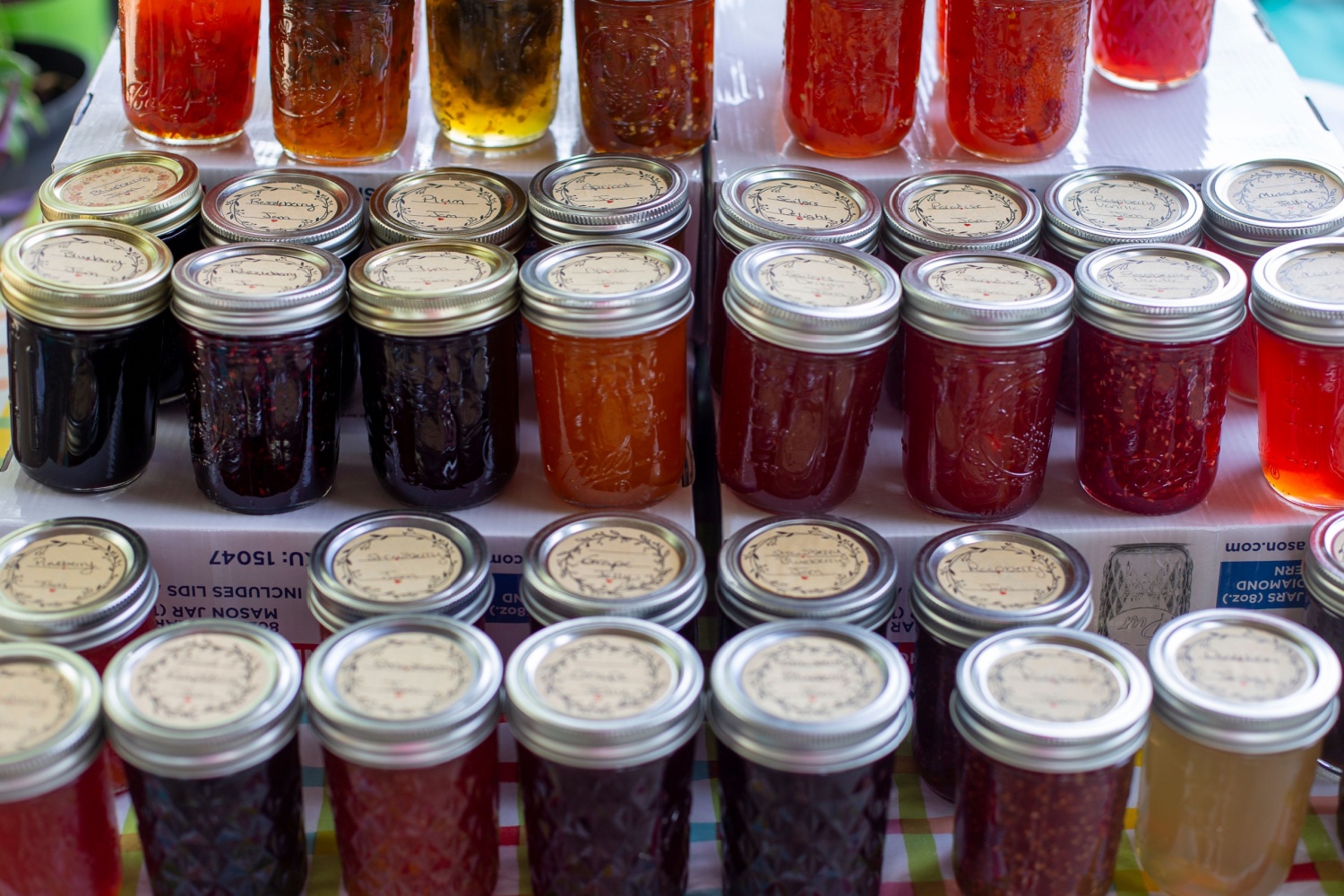It’s a sight at various farmers markets across the country — a booth with canned food goods: pickled, jellied and other delectable fare. And in the case of Western Kentucky entrepreneur Robert Grosz, his business was developed by a case of accidental discovery.
“Because we’re doing farmers market, we were buying and selling Amish vegetables, and I was on my way to go to the auction to go get some vegetables. The wheel literally passed me on the highway because my son didn’t tighten it down right. So, I pulled over and said to my wife, I said, ‘We’re not going to make the market today.’ She said, ‘But I promised Miss Martha.’ So, Kentucky had just passed their cottage laws and allowed us to be able to make from home. So, we made 40 jars of jams and jellies, and then we made 50, and then we made 100. Now we do somewhere between 600 and 800 a week.”
A growing business, indeed — inside his home, with two and a half people making all these goods — he provides illustrations of his Artesia business, Whiskey Ridge Farm.
“The nice thing is that even though we don’t grow what we put in jars, all my local farmers know what I want, and they’ll go out of their way to make sure — and they’ll call me and say, ‘Look, I’m picking okra on Tuesday. Do you want some?’ And I’ll go get 100 pounds of okra or jalapeños. I’ve got a kid that just grows all my peppers for me. So, it’s nice to be able to go, especially with having those relationships, to be able to take stuff that is bulk and put it into a value-added product that can now not only be in the United States, but we can also ship and we can be in stores internationally. And that helps everybody, because all boats rise in a rising tide.”
Part of the business involves the creation of products from recipes that, well, provide both nostalgia and variation — for instance, a corn cob jelly recipe obtained during an 1800s reenactment event.
“They call it Poor Man’s Honey. So, you take dried corn cobs, after you remove everything from it. You boil it and you make a honey out of it. And the cool thing is, you’re able to take something that’s been around for generations and show that kids — in the old days — we didn’t have Walmart to run down and go get something sweet. We had to make it. And the other one that we do is a pear honey that’s made with pear. You cook it right; it tastes like honey and allows you to sweeten that hardtack biscuit that you might have in the 1800s.”
In other words, it’s not just about the canning.
“Bringing back those traditions — like what I got at Grandma’s house, like dilly beans. There are the people that have a little gray hair, like me, that really look forward to that. I have a lemon jelly — it’s made with all the different kinds of lemons. And those of you that were in the ’60s or ’70s, you’ll be able to look and go, ‘I remember that little lemon drop thing in the brown wrapper that I just grew up with,’ or like a Christmas pickle, which is a cucumber that tastes like a cinnamon red hot. It takes forever to make, but it’s a wonderful product, and it brings back the memories that we all have from long ago.”
And yes, it is a niche market Grosz attempts to attract, although he says he has some built-in value — value-added in that:
“With canning, my product will last two years on a shelf, so I don’t have to worry like a baker, with that is going to rot next week. So, I can make it when the fresh fruits come in and make as much as I need. So, if it’s okra season, I’m going to do okra. If it’s pickling cucumber season, I’m going to make as many pickles as I can — that I can afford to make — so that I can sell them throughout the year.”


